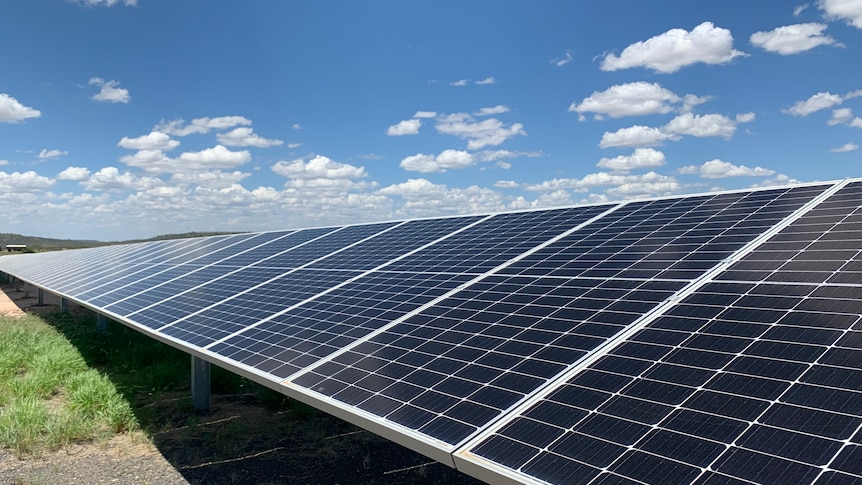A decision to cease funding for a successful statewide community renewable energy program is leaving hundreds of projects important to Victoria’s de-carbonisation targets in limbo.
Key points:
-
The Victorian government funded the Community Power Hub program for 12 months
-
Community groups are disappointed funding has not been extended
-
More than 200 community renewable energy projects have been supported
The Victorian government has not re-funded the Community Power Hub program, which ran in six areas across the state for the past 12 months.
Program leaders say the abrupt end to the program will create an uncertain future for the community renewable energy projects it was designed to help progress.
Not-for-profit organization Ballarat Renewable Energy and Zero Emissions (BREAZE) led the Community Power Hub for the Grampians region, which supported 40 projects through the feasibility stage.
President Mary Debrett said many active community members would continue driving their projects to completion, but others would struggle to get off the ground without external support.
She said she was disappointed the program was not re-funded.
“It will be those communities that have proactive people that will be the ones advantaged and those that don’t will be disadvantaged,” Ms Debrett said.
“For those organizations and communities where we have done feasibility studies, they are going to be needing some extra support.
“They are slow-burn projects that take a lot of work.”
Grampians Community Power Hub staff and volunteers worked with communities in Ballan and Pomonal to investigate community battery options and residents in St Arnaud on a renewable energy hub.
They facilitated energy audits at Grampians Health and J Ward in Ararat and the installation of solar panels at golf clubs, disability services, schools, community halls, and sporting clubs.
Slow, complex projects
Natimuk Community Energy president Edwin Irvine said their community solar farm project had been progressing for 14 years, but the Grampians Community Power Hub assisted them through crucial steps.
He said Grampians Community Power Hub staff and volunteers helped them through a complex design and approvals process as well as governance and finance decisions, which they could not have done on their own.
“Before doing this, I didn’t know anything at all about energy regulation or the physics of a solar farm and how it connects with the grid. I needed that help,” Mr Irvine said.
“I can imagine there are a lot of other community groups that are going to need that help.
“If that help is not there, those other community groups are going to find it really, really hard.”
energy revolution
Experts say community renewable energy projects will play an important role in Victoria’s renewable energy transition.
Melbourne Energy Institute’s Professor Pierluigi Mancarella said sharing energy on a community level made sense because of cost and efficiency.
He said smaller renewable-based power plants with batteries and storage should replace “gigantic” fossil fuel-based plants and community-level batteries would be more efficient than household ones.
Professor Mancarella said supporting community renewable energy projects would be fundamental to Victoria’s decarbonisation process.
“There is so much learning… it is a competing revolution,” he said.
“It completely destroys the business models, commercial models and regulatory environment, which we have operated in so far.”
New funding scheme
Victorian Energy Minister Lily D’Ambrosio said the successful Community Power Hub program had been funded for 12 months and progressed 200 proposed projects in that time.
“We hope these local success stories inspire more renewable energy projects in the community, taking advantage of our rebates and programs for households, community groups, and businesses,” she said.
The Victorian government has created a repayable grants program, where at least $50,000 is available for community group renewable energy projects, but loans must be repaid in five years.
The money is a low-interest-rate loan to help groups secure third-party funding.
The Victorian government has legislated a target of 50 per cent renewable energy for the state by 2030.
.
